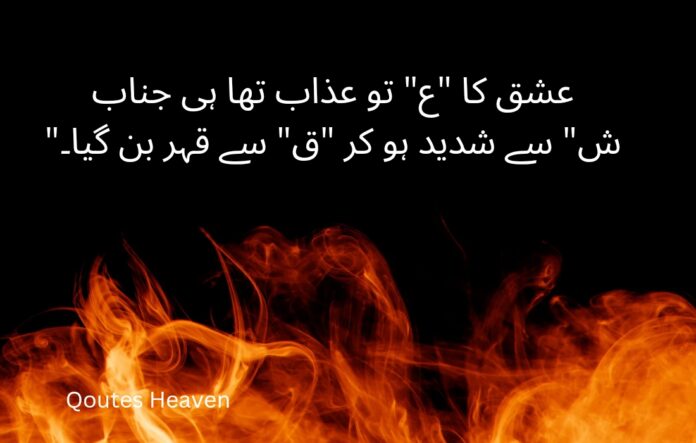The Art of Poetry: Unlocking Emotions Through Words
Poetry is one of the most expressive and timeless forms of literature. It has been used for centuries to convey emotions, tell stories, and explore the human experience. Whether through structured forms like sonnets or free-verse styles, poetry allows writers to play with language and evoke deep feelings in readers.
Why Poetry Matters
Poetry holds a unique place in the literary world because it compresses meaning into small, powerful forms. A few well-chosen words can evoke strong emotions and open new perspectives. Unlike prose, where the narrative flow is linear, poetry can play with rhythm, rhyme, and metaphor to explore complex ideas in a condensed space. This compactness forces the reader to engage with each word, line, and stanza, making the reading experience more profound.
The Benefits of Reading Poetry
1. Emotional Connection: Poetry often delves into emotions, from joy and love to grief and despair. Reading poetry can help us connect to our own feelings and those of others.
2. Mental Stimulation: Poetry often requires close reading and interpretation. This makes it a great workout for the mind, encouraging critical thinking and analytical skills.
3. Creative Inspiration: Writers, artists, and musicians often turn to poetry for inspiration. The flexibility of language in poetry invites creative thinking and new perspectives.
How to Write Poetry
If you’re inspired to write your own poetry, here are a few tips:
1. Choose a Theme: Start with an emotion, experience, or observation you want to explore.
2. Play with Form: Experiment with different structures, like haikus, sonnets, or free verse. Find the format that best conveys your message.
3. Use Imagery: Strong imagery can make your poem vivid and memorable. Try to show rather than tell your emotions through specific, sensory language.
4. Revise and Edit: Poetry is an art of precision. Be ruthless in editing, making sure every word serves a purpose.
Conclusion
Poetry remains a vital, relevant art form in modern times. Whether you’re reading the classics or crafting your own verses, poetry offers a unique avenue for emotional and intellectual exploration. By appreciating and creating poetry, you tap into a centuries-old tradition of expressing the depths of the human soul.
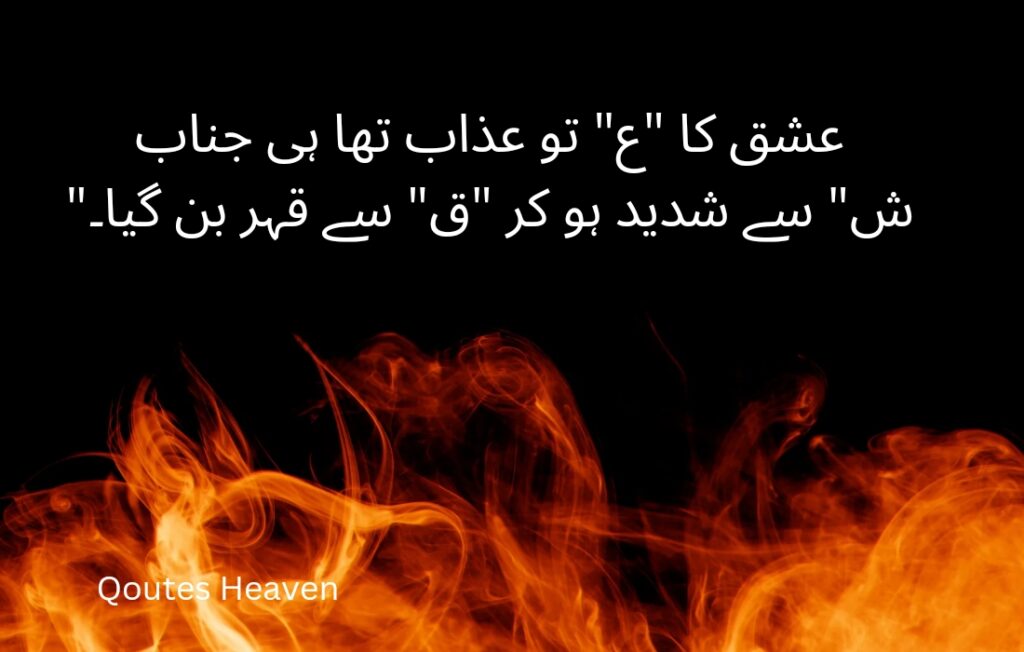
عشق کا “ع” تو عذاب تھا ہی جناب
“ش” سے شدید ہو کر “ق” سے قہر بن گیا۔
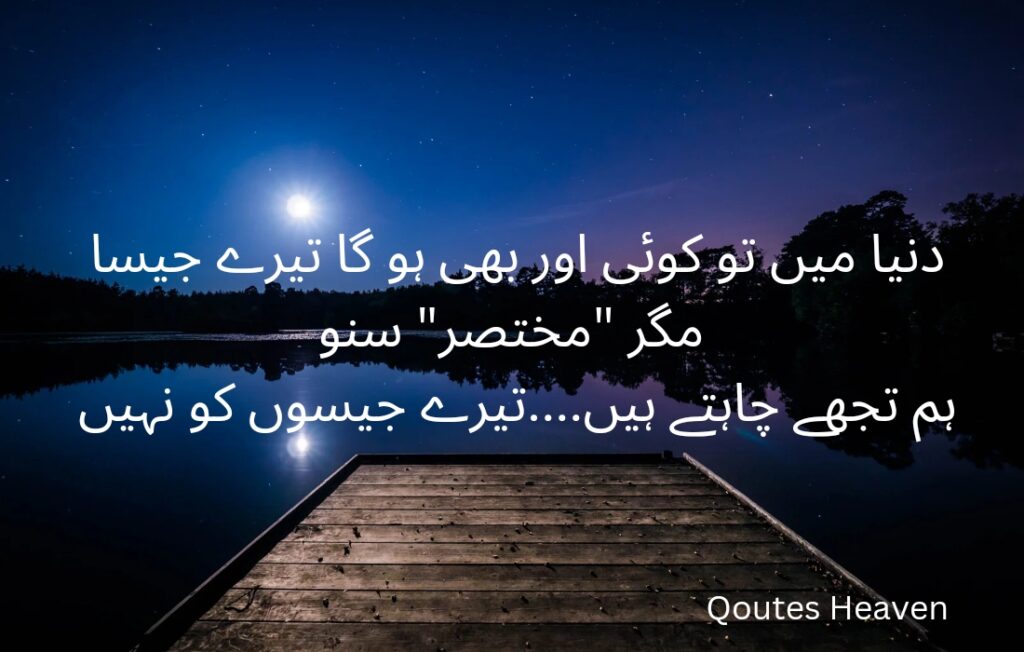
دنیا میں تو کوئی اور بھی ہو گا تیرے جیسا
مگر “مختصر” سنو
ہم تجھے چاہتے ہیں….تیرے جیسوں کو نہیں
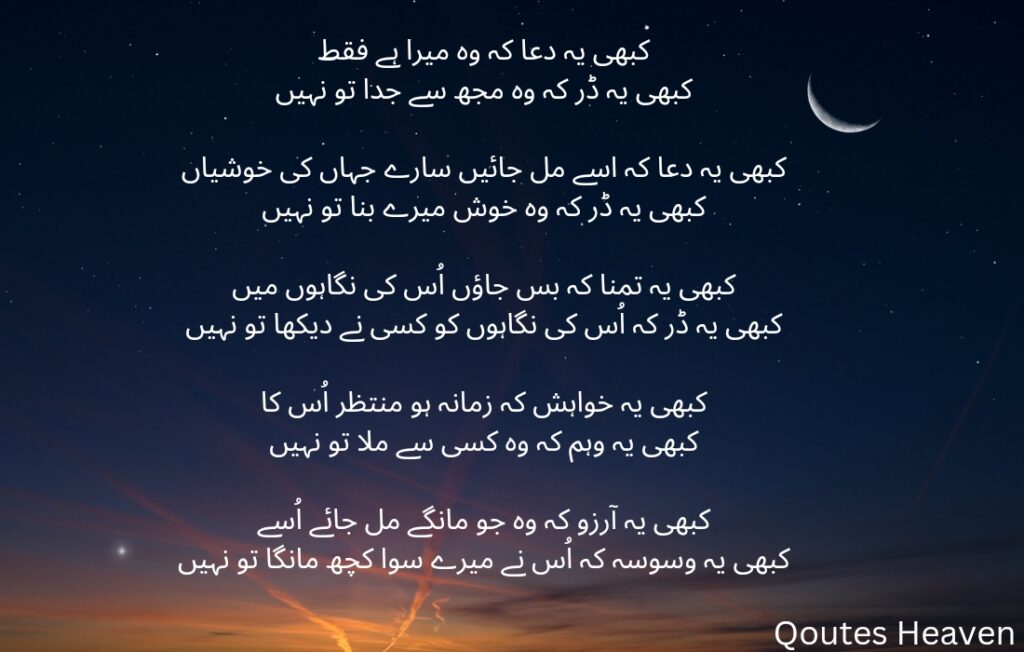 کبھی یہ دعا کہ وہ میرا ہے فقط
کبھی یہ دعا کہ وہ میرا ہے فقط
کبھی یہ ڈر کہ وہ مجھ سے جدا تو نہیں
کبھی یہ دعا کہ اسے مل جائیں سارے جہاں کی خوشیاں
کبھی یہ ڈر کہ وہ خوش میرے بنا تو نہیں
کبھی یہ تمنا کہ بس جاؤں اُس کی نگاہوں میں
کبھی یہ ڈر کہ اُس کی نگاہوں کو کسی نے دیکھا تو نہیں
کبھی یہ خواہش کہ زمانہ ہو منتظر اُس کا
کبھی یہ وہم کہ وہ کسی سے ملا تو نہیں
کبھی یہ آرزو کہ وہ جو مانگے مل جائے اُسے
کبھی یہ وسوسہ کہ اُس نے میرے سوا کچھ مانگا تو نہیں
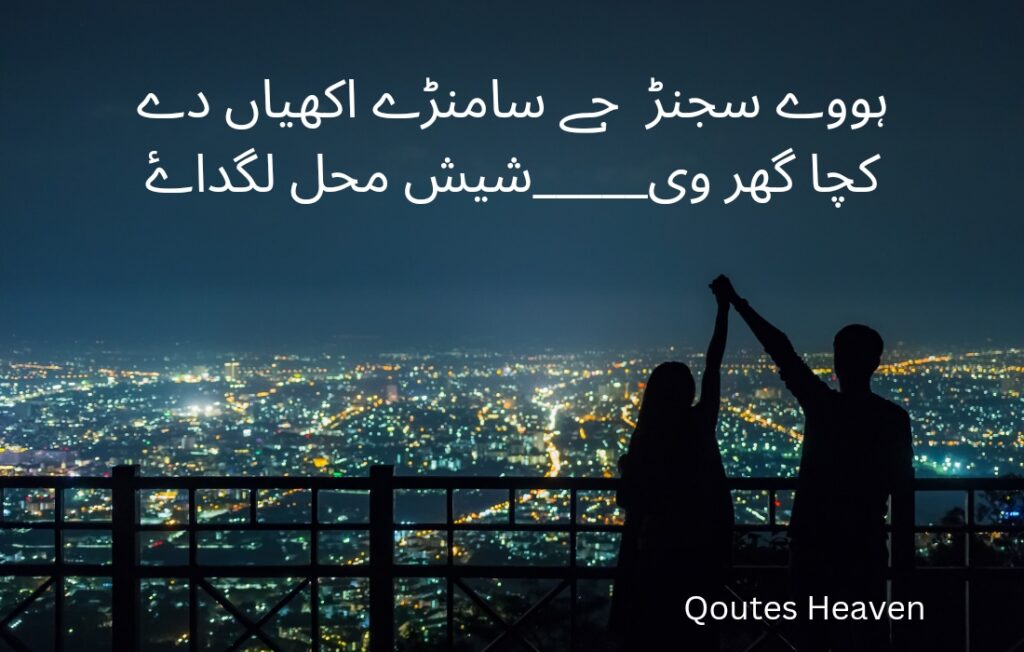
ہووے سجنڑ جے سامنڑے اکھیاں دے
کچا گھر وی_____شیش محل لگداۓ
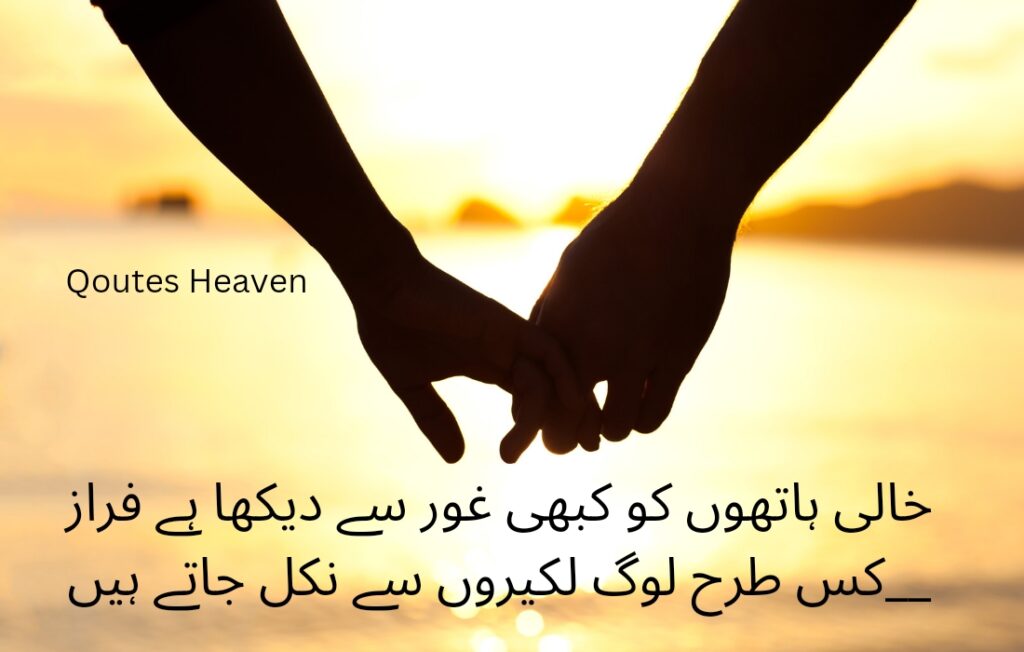
خالی ہاتھوں کو کبھی غور سے دیکھا ہے فراز
کس طرح لوگ لکیروں سے نکل جاتے ہیں__
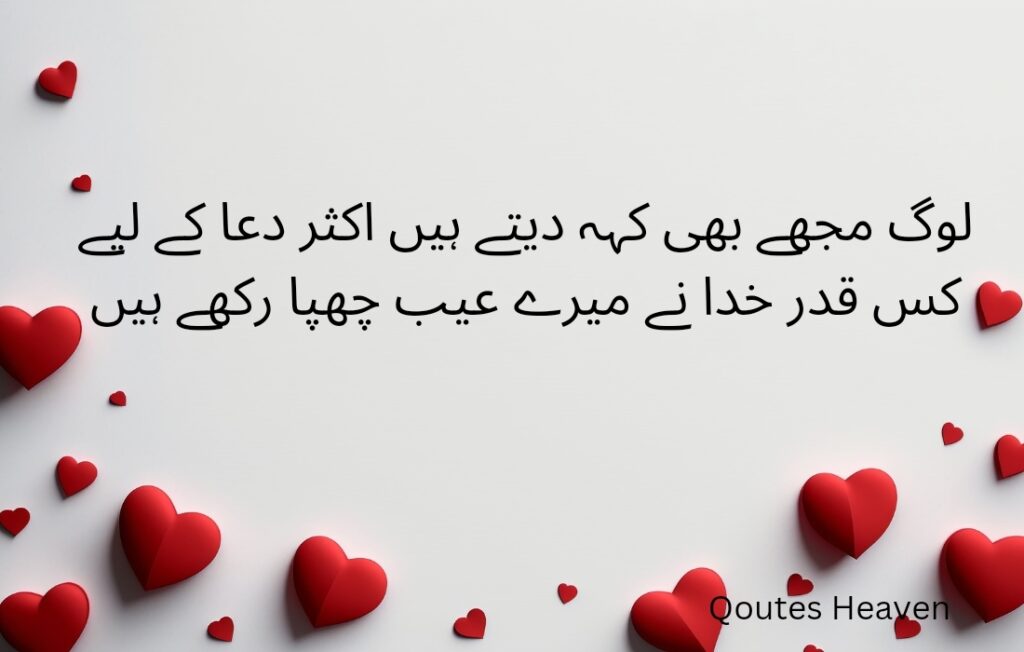
لوگ مجھے بھی کہہ دیتے ہیں اکثر دعا کے لیے
کس قدر خدا نے میرے عیب چھپا رکھے ہیں
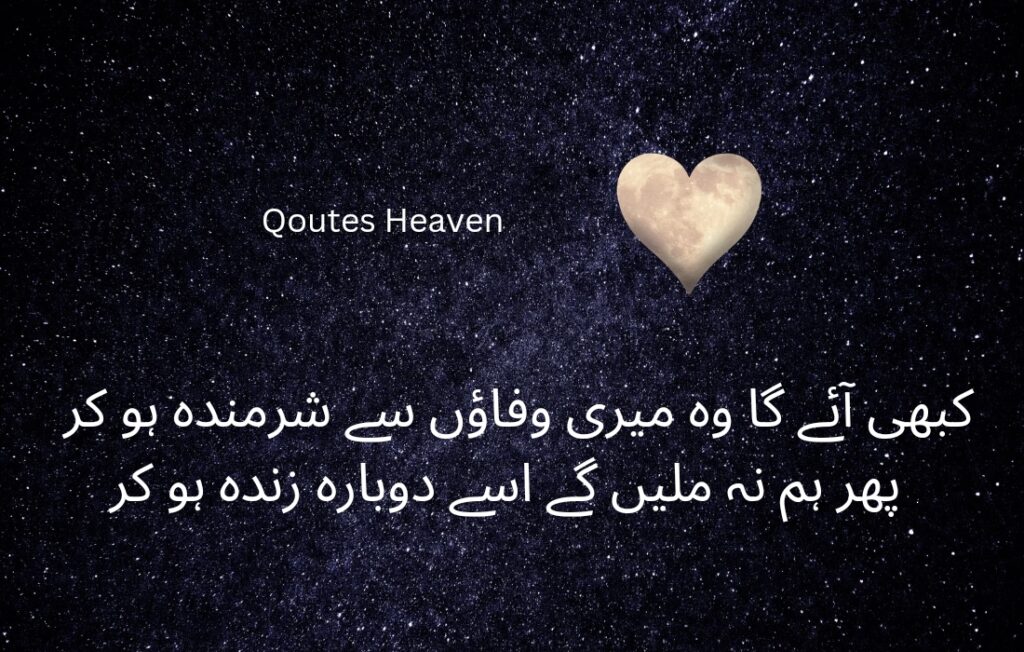
کبھی آئے گا وہ میری وفاؤں سے شرمندہ ہو کر
پھر ہم نہ ملیں گے اسے دوبارہ زندہ ہو کر
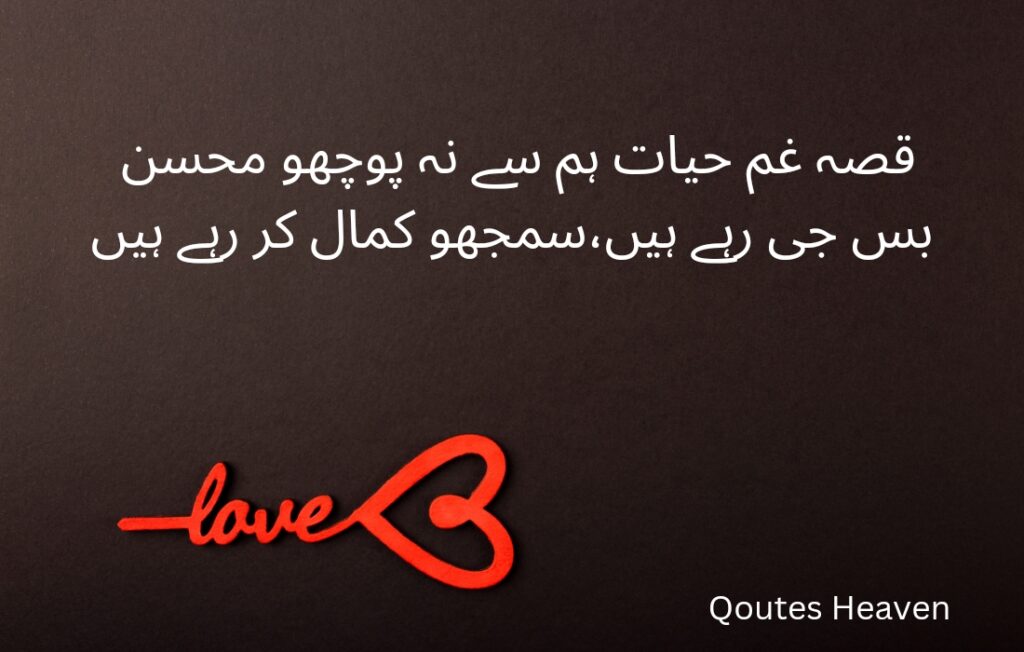
قصہ غم حیات ہم سے نہ پوچھو محسن
بس جی رہے ہیں،سمجھو کمال کر رہے ہیں
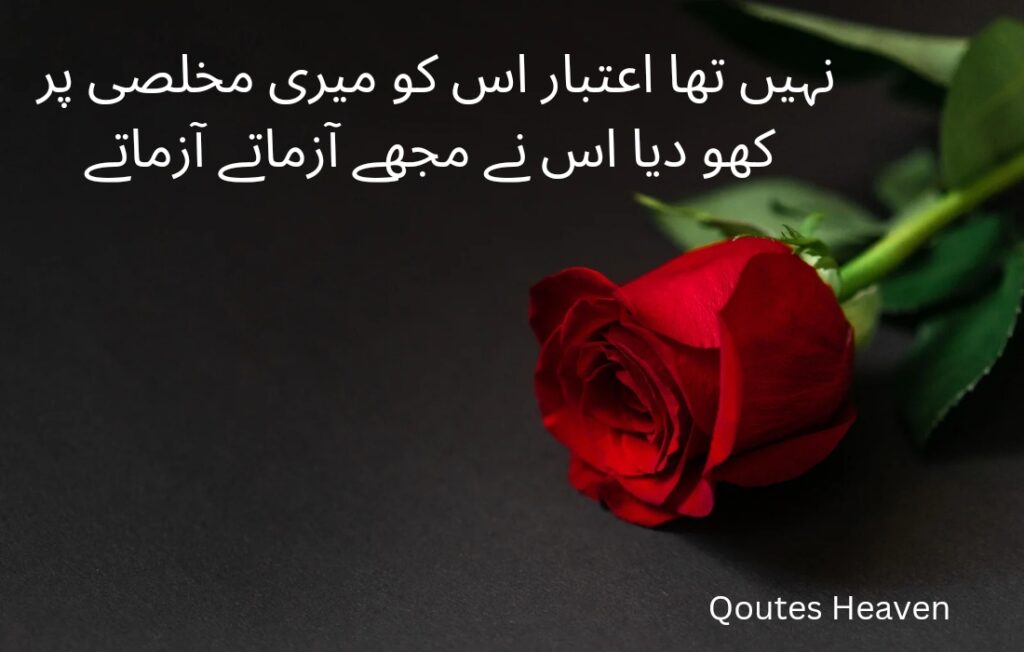
نہیں تھا اعتبار اس کو میری مخلصی پر
کھو دیا اس نے مجھے آزماتے آزماتے
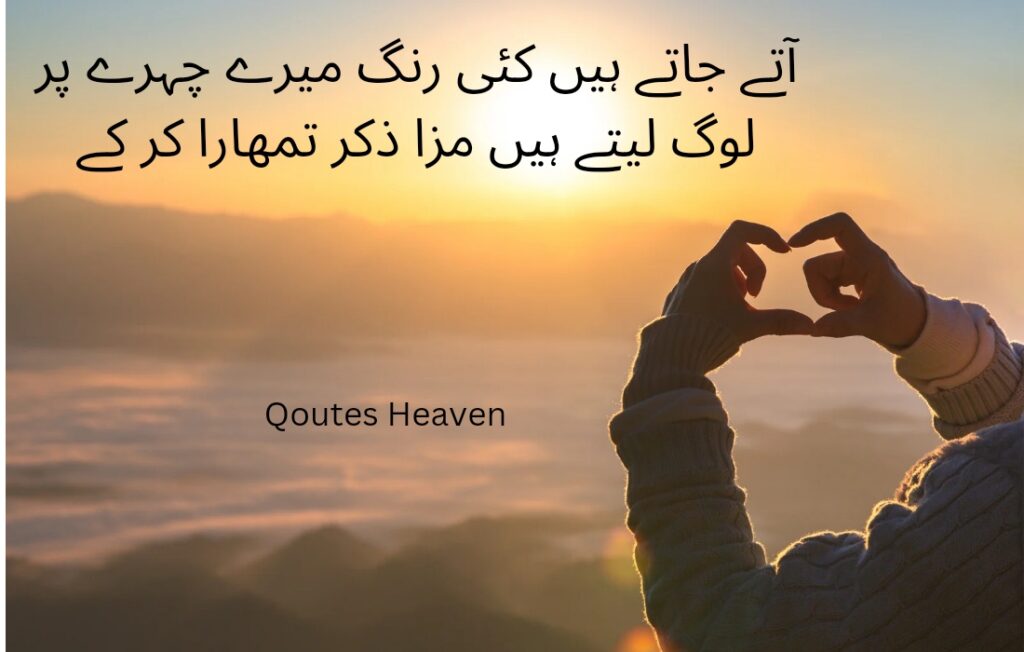
آتے جاتے ہیں کئی رنگ میرے چہرے پر
لوگ لیتے ہیں مزا ذکر تمھارا کر کے
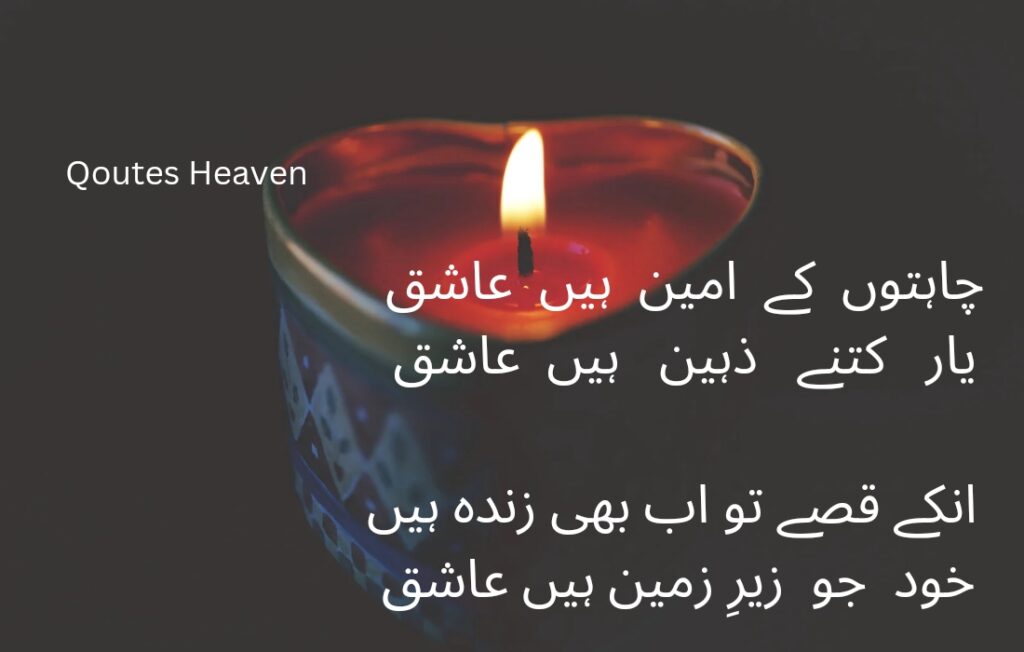
چاہتوں کے امین ہیں عاشق
یار کتنے ذہین ہیں عاشق
انکے قصے تو اب بھی زندہ ہیں
خود جو زیرِ زمین ہیں عاشق
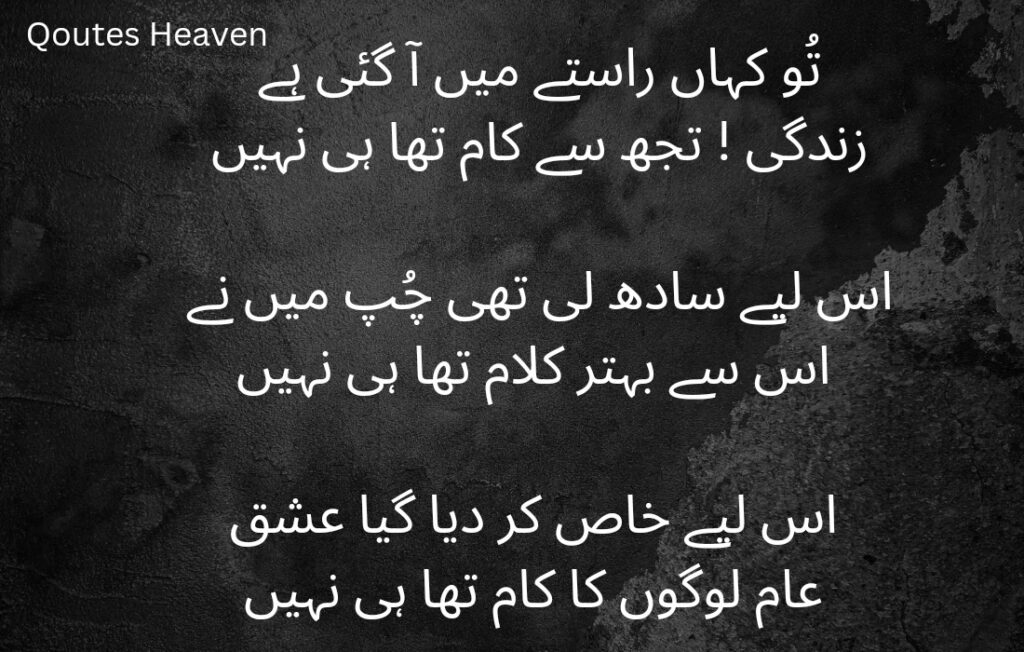
تُو کہ
اں راستے میں آ گئی ہے
زندگی ! تجھ سے کام تھا ہی نہيں
اس لیے سادھ لی تھی چُپ میں نے
اس سے بہتر کلام تھا ہی نہيں
اس لیے خاص کر دیا گیا عشق
عام لوگوں کا کام تھا ہی نہيں
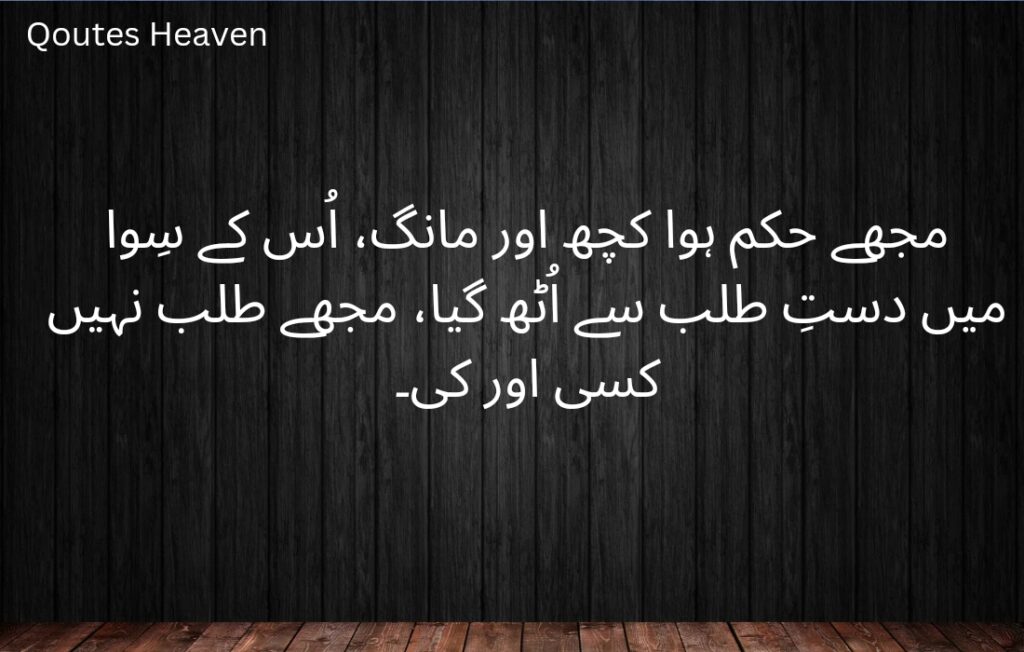
مجھے حکم ہوا کچھ اور مانگ، اُس کے سِوا
میں دستِ طلب سے اُٹھ گیا، مجھے طلب نہیں کسی اور کی۔

